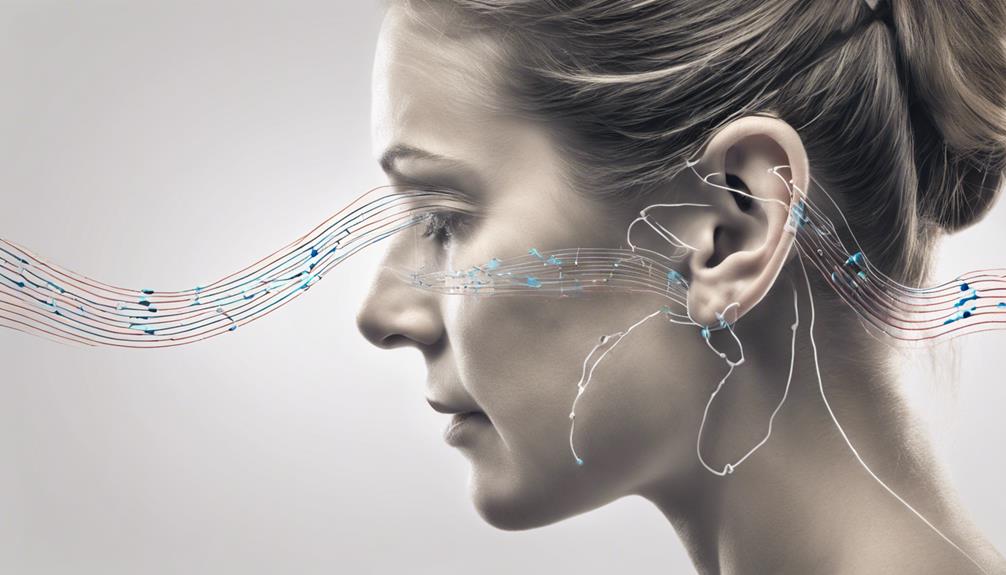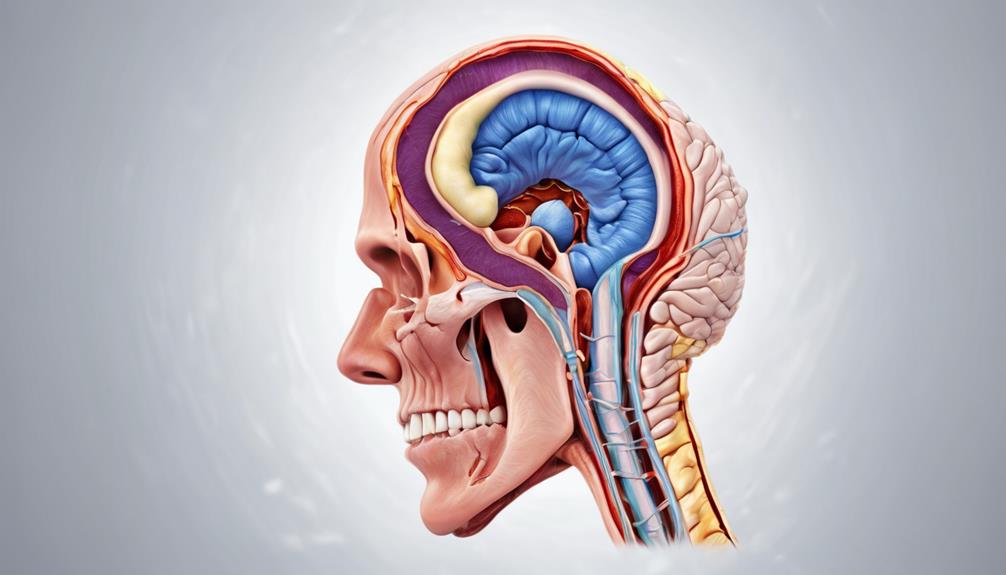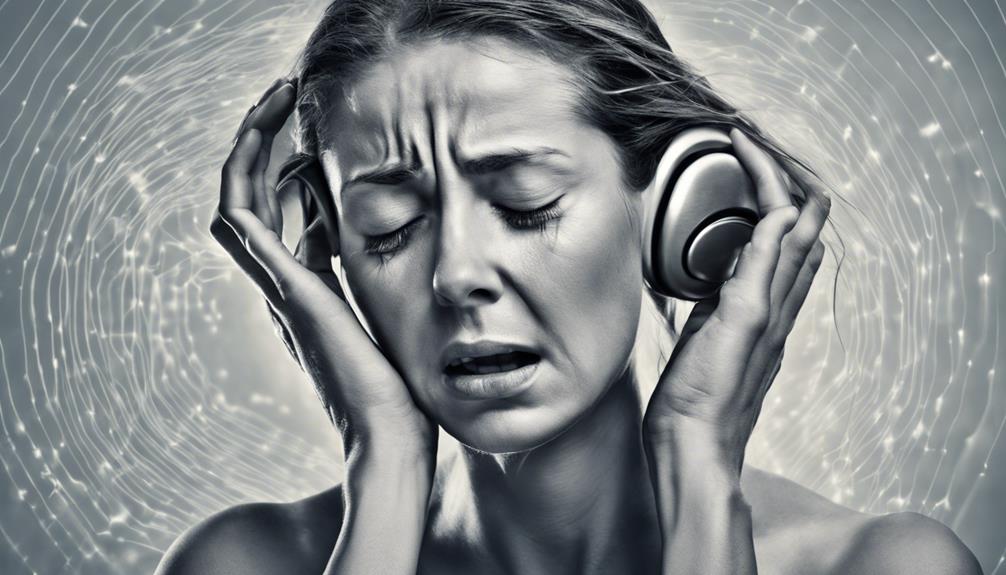Hearing aids have received praise for their ability to help individuals with hearing loss. Yet, there is an ongoing worry: could these devices actually contribute to further hearing damage?
While the notion may seem plausible, our exploration into this topic reveals a surprising truth. Stay tuned to uncover the intricacies of the relationship between hearing aids and potential hearing loss, shedding light on a matter that impacts countless individuals seeking auditory assistance.
Key Takeaways
- Properly fitted hearing aids do not cause hearing loss.
- Regular use of hearing aids maintains auditory stimulation.
- Consult audiologists for personalized fitting and adjustments.
- Following guidelines ensures safe and effective hearing aid usage.
Potential Risks of Hearing Aid Use
When considering the use of hearing aids, it's crucial to be aware of the potential risks associated with their usage to safeguard one's hearing health. Prolonged or improper use of hearing aids at high volumes can damage the delicate structures in the ear, leading to hearing loss.
Incorrectly fitted devices or using them without professional guidance may result in over-amplification, posing a significant risk to the auditory system. Regular maintenance and adjustments by an audiologist are essential to prevent adverse effects on hearing health.
Additionally, using outdated or malfunctioning hearing aids can compromise their effectiveness and potentially contribute to further hearing deterioration. Adhering to recommended guidelines, such as appropriate volume levels and wearing schedules, can help minimize the risk of hearing loss associated with hearing aid use.
It's imperative to stay informed and proactive in managing these risk factors to maintain optimal hearing health while benefiting from the assistance that hearing aids provide.
Understanding Hearing Aid Technology
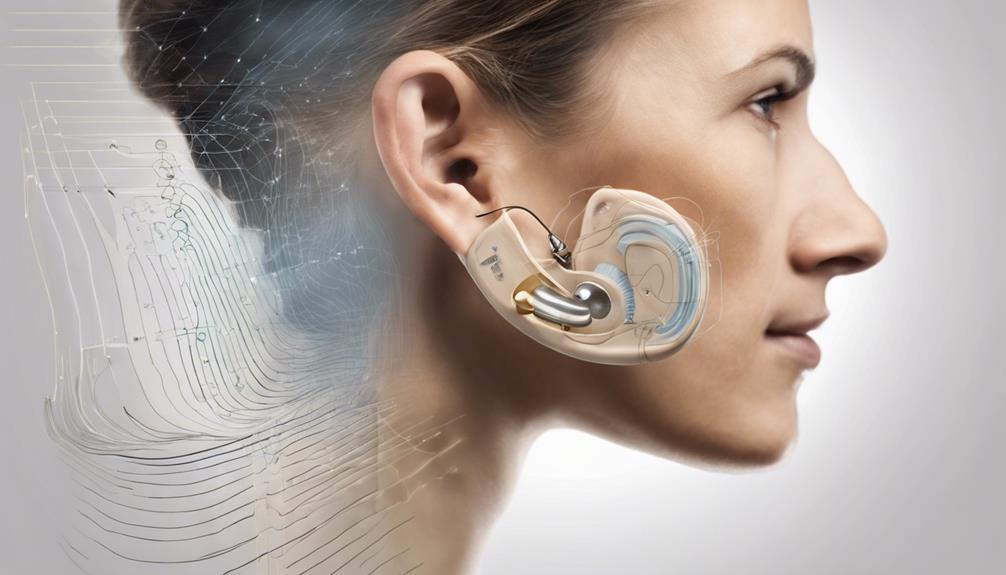
To further explore the advancements in hearing aid technology, we delve into the intricacies of how these devices utilize digital signal processing to tailor sound amplification according to individual requirements.
In the realm of age-related hearing loss and hearing impairment, hearing aids play a crucial role in improving auditory experiences. Digital signal processing allows for precise adjustments in amplification, ensuring that individuals receive optimal sound quality based on their specific needs.
These technological marvels not only amplify sounds but also enhance clarity, making speech more intelligible while reducing background noise interference. Hearing aids are available in various styles, such as behind-the-ear, in-the-ear, and completely-in-the-canal options, catering to different preferences and requirements.
Additionally, directional microphones help focus on speech, further aiding in communication, while telecoils enable connectivity to compatible devices like telephones and loop systems, expanding listening possibilities for individuals with hearing difficulties.
The integration of digital signal processing in hearing aids represents a significant advancement in addressing hearing impairments and improving overall quality of life.
Impact of Hearing Aids on Hearing Health
Hearing aids play a crucial role in enhancing auditory experiences and improving overall hearing health through sound amplification and communication enhancement. When used correctly, hearing aids do not cause hearing loss; in fact, they can prevent auditory deprivation by stimulating the auditory system. According to a study published by the National Institute on Deafness, regular use of hearing aids is essential to maintain optimal hearing health and prevent social isolation. These devices have advanced significantly, offering clearer sound quality and customizable settings tailored to individual needs. Consulting with audiologists for proper fitting and adjustments is crucial to ensure maximum hearing benefits without causing harm. Below is a table highlighting the positive impacts of hearing aids on hearing health:
| Benefits of Hearing Aids |
|---|
| Prevents auditory deprivation |
| Enhances communication |
| Improves social interactions |
| Reduces social isolation |
| Enhances results of hearing tests |
Debunking Myths About Hearing Aid-Related Hearing Loss
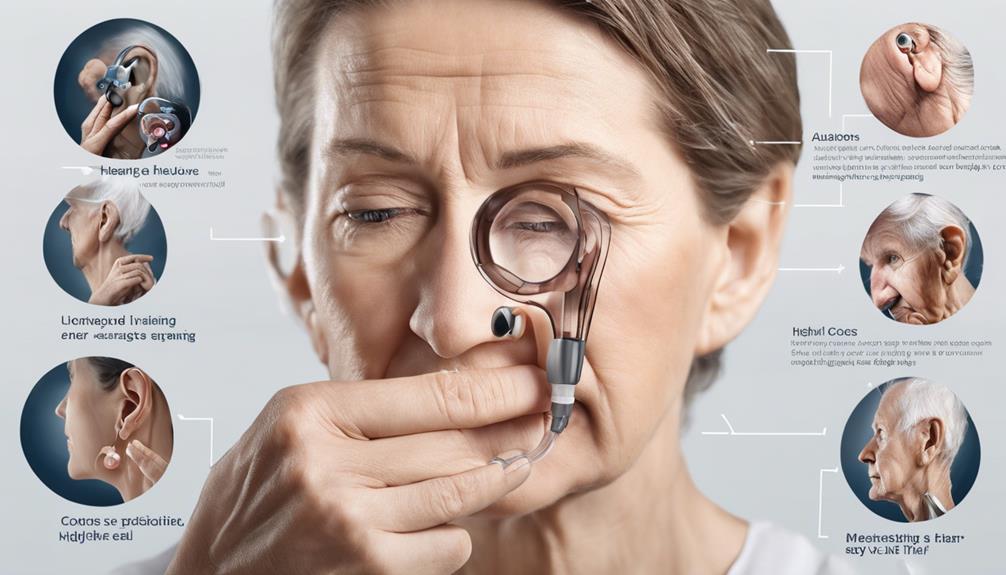
Moving from the discussion on the positive impacts of hearing aids on hearing health, it's crucial to address and dispel common misconceptions surrounding the idea of hearing aid-related hearing loss.
Debunking Myths About Hearing Aid-Related Hearing Loss:
- No Direct Link: Contrary to popular belief, using hearing aids properly doesn't lead to hearing loss. In fact, these devices are specifically designed to enhance hearing ability.
- Preservation of Hearing: Properly fitted and maintained hearing aids play a vital role in preserving existing hearing function and preventing further deterioration.
- Regulated Medical Devices: Hearing aids are regulated by bodies like the National Institutes of Health and are calibrated to amplify sounds based on individual needs without causing harm.
- Enhanced Quality of Life: Regular use of hearing aids, as prescribed by audiologists specializing in Deafness and Other Communication Disorders, can significantly improve communication, social engagement, and overall quality of life.
Tips for Safe and Effective Hearing Aid Use
When using hearing aids, it's essential to prioritize safe and effective practices for optimal hearing health. Proper fitting by a qualified audiologist is crucial to prevent common problems like discomfort and potential ear damage.
Following the recommended wearing schedule provided by the audiologist helps prevent overexposure to amplified sounds, safeguarding your hearing. Keeping hearing aids clean and dry is paramount for their effectiveness and to prevent ear infections.
Regularly monitoring and adjusting the volume settings can prevent excessive loudness, which could lead to further hearing damage. Additionally, attending regular follow-up appointments with the audiologist is vital to address any concerns and ensure the hearing aids are performing optimally.
Frequently Asked Questions
Can Wearing Hearing Aids Cause More Hearing Loss?
Wearing properly prescribed and fitted hearing aids doesn't cause further hearing loss. Hearing aids are designed to amplify sounds to compensate for hearing loss without damaging the ears.
Incorrect or prolonged use of poorly fitted hearing aids can potentially harm hearing. Regular check-ups and adjustments by audiologists ensure hearing aids are beneficial and safe.
Adhering to audiologist recommendations and wearing hearing aids correctly minimizes any risk of additional hearing loss.
What Is the Most Common Cause of Hearing Loss?
When it comes to the most common cause of hearing loss, age-related changes in the inner ear known as presbycusis top the list. Presbycusis, also known as age-related hearing loss, affects many individuals as they grow older.
Factors like genetics, underlying health conditions, and exposure to loud noises can also contribute to hearing loss. Understanding the various causes can help in prevention and management strategies for maintaining optimal hearing health.
What Are the Negatives of Hearing Aids?
Let's explore the negatives of hearing aids. While these devices offer tremendous benefits, there are some drawbacks to consider. Discomfort, ear canal irritation, and feedback noises can impact user experience.
Additionally, improper maintenance or high volume settings may lead to ear infections, wax buildup, or potential hearing damage. Adapting to amplified sounds can also pose initial challenges.
Proper fitting, usage, and regular check-ups are essential to mitigate these issues and maximize the benefits of hearing aids.
What Is the Biggest Problem With Hearing Aids?
The biggest problem with hearing aids is often improper fitting, leading to discomfort and inefficiency in improving hearing.
Inadequate adjustment can cause sound distortion and difficulty in distinguishing speech. Poor maintenance, like neglecting regular cleaning or part replacements, may impact effectiveness.
Additionally, feedback or whistling noises can be common issues. Delayed or no professional adjustments can hinder optimal performance and user satisfaction.
Conclusion
In conclusion, it's important to debunk the myth that hearing aids can cause hearing loss. When used correctly, hearing aids can actually improve cognitive function and overall well-being in individuals with hearing loss.
For example, a recent study showed that individuals who used hearing aids experienced better memory recall and cognitive processing compared to those who didn't use hearing aids. Therefore, it's crucial to address hearing loss with appropriate interventions like hearing aids to positively impact cognitive decline.

